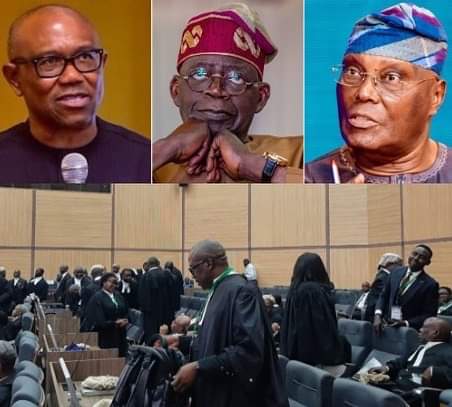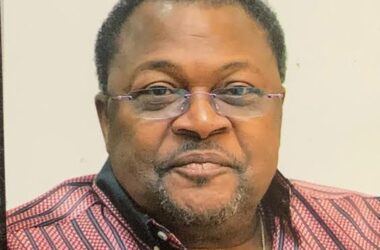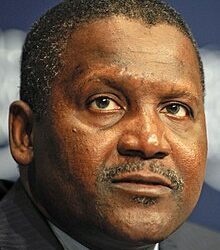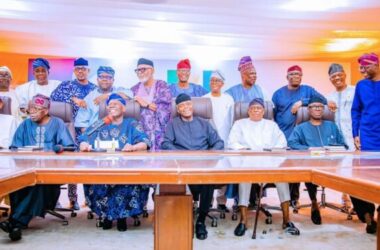‘No man’, said the late US President, Abraham Lincoln, ‘is good enough, or wise enough, to govern his fellowman WITHOUT his consent.’ The consent of the governed is, by a long mile, the most important determinant of the legitimacy of any government (and by extension, any political system) that claims to have democratic underpinnings. The tragedy of governance over the long and chequered history of man’s rule over his fellow man has rested on this issue of consent – or lack thereof. Where consent is not given, there is no legitimacy, however a government obtains power, however long it stays in power for, and whatever other claims it makes for itself. Even when consent is freely given, legitimacy ends the very moment that consent is withdrawn. Consent is the one component that distinguishes democracy in all its dimensions from other forms of governance – monarchy, feudalism, fascism, oligarchy, you name it.
Since Saturday, the 22nd of February, 2023, when the Nigerian electorate went to the polls to choose a new President and a successor to the outgoing leader, Muhammadu Buhari, GCFR, there has been a flurry of post-election activities, especially at the level of the judiciary, to determine the legitimacy (or otherwise) of the outcome, and the nature of the ‘mandate’ handed down by INEC (the Independent National Electoral Commission, which presided over the polls) to Asiwaju Bola Ahmed Tinubu, the candidate of the ruling All Progressives’ Congress (APC) and the declared winner of the polls. In other words, the argument – whether in the hallowed halls of the Temple of Justice, or on political talk shows in the media, or around the family dinner-table, or at street news-stands, or even in drinking pubs across the length and breadth of Nigeria – is, did the declared winner receive the consent that legitimizes his election and his consequent rule over the Nigerian state and the affairs of its people?
The recent decision of the seven-man panel of Supreme Court justices, led by the Hon. Inyang Okoro, in which the highest court in the land affirmed Tinubu as the duly-elected Nigerian President (thereby upholding an earlier ruling by the lower court of record) is the culmination of the rounds of litigation that have engaged the attention of Nigerians, be they experts in the law or laymen, since the February election. Like the lower courts, the apex court dismissed the respective petitions of the former Vice President, Alhaji Atiku Abubakar, presidential candidate of the People’s Democratic Party (PDP) and Mr. Peter Obi, former Governor of Anambra State and candidate of the Labour Party (LP) on a plethora of grounds, most of them technical or procedural. In other words, the Supreme Court panel agreed that the figures cited by INEC in its declaration of the former Governor of Lagos State amounted to the consent (however muted or flawed) of the Nigerian electorate.
The definitive conclusion of this matter will disappoint some people – especially those who had a stake in a different outcome. There will be those among them who, at best, will question the Court’s locus standi in reaching this conclusion. There are those will criticize the Court’s over-reliance on technicalities and the minutiae (nitpicking, as they prefer to call it) rather than the ‘substantive’ issues that were raised in this case. There will be those who will pore diligently over the arguments advanced by the Panel (and by each respective Justice) on each of the issues in contention as recorded in the Law Reports and other relevant publications. Since the end is not to overturn the SC ruling (which is impossible) this exercise will serve to make reference to them as judicial precedents for future cases of this kind.
And then there are those who, at worst, will condemn the Court and indeed all servants in the Temple of Justice as hopelessly and completely compromised, and as having abdicated the judiciary’s ultimate responsibility to be the proverbial ‘last hope of the common man.’
This last stance would be a mistake, because it is based more on emotionalism and sentiment (which are always irrelevant to any judicial pronouncement, ruling or injunction) as opposed to a cold, hard and realistic assessment of both the provisions and application of extant laws in respect to the issues under review – and the evidence before their lordships. Sentiment, and whatever expectations are based on it, has nothing to do with judicial understanding of the letter of the law, nor with the jurists’ appreciation (however nuanced) of the spirit thereof, ie what the framers of said law originally intended and envisaged.
Happily, the end of this tortuous cycle of litigations will be greeted with relief and a sense of closure among many other Nigerians who simply want the country to move on from the drama and intrigue of politicking to the realm of actual governance. To them, the end of this cycle has served a dual purpose; it has satisfied the desires of those who wanted to subject this election (and especially the expected role and actual performance of INEC, and its pre-election promises on the use of technology, etc) to a stress test rather than sweep all manner of irregularities and clear breaches of the Electoral Act under the proverbial carpet in the name of peace and the desire to ‘ move on.’ It has also satisfied the wishes of those who insist that move on we must, not to derogate from electoral integrity and the need to rigorously enforce sanctions against electoral malfeasance in a bid to deter a recurrence, but in view of the urgent problems currently facing the Nigerian people, and the need to quickly get down to brass tacks in addressing them. It will even vindicate those among them who have canvassed for a provision in said electoral law that requires all election-related petitions and appeals to be resolved BEFORE the consummation of any mandate, in order to save office-holders from undue distraction occasioned by these petitions and appeals, and also to avoid the pressure any embattled incumbent might want to bring to bear on the legal process in order to swing it in his favour.
For supporters of the President, an added source of satisfaction must lie in the fact that some of the issues raised by the opposition in their petition and appeal but ultimately set aside by the Supreme Court ruling (such as the so-called ‘discoveries’ concerning the President’s academic records, the forfeitures of huge funds to authorities in the US, etc) will no longer be an issue for litigation in future electoral contests of this kind – as the 2023 judgment will now serve as a judicial precedent, leaving the opposition with ittle, if anything, to latch on to against the President, should he decide to run again for his office in 2027.
Now that all that is over, both the victors and the vanquished must draw positives from this moment. Unfortunately, our experience as a nation has shown that – in words uttered with the sardonic humour typical of Nigerians – the people who are ruling do not know how to rule, and the people in opposition do not know how to oppose. The duo of Mr. Obi and Alhaji Atiku must help rewrite this narrative in their response to the Supreme Court judgment; they and their teeming supporters must rise beyond their personal and partisan loss and see this as a necessary sacrifice for the greater good and for the deepening of our democracy. Whether or not they agree with the SC verdict, they must abide by it. They must congratulate President Tinubu and offer their support and counsel – while at the same time standing their ground when it comes to disagreements on matters of principle (for that, too, is the fertiliser that nourishes the flower of democracy). In the next four years, they must keep the Tinubu administration on its toes, not through criticism for its own sake, but to hold the government to account on the issues that matter to the welfare and security of the Nigerian people, as well as offer an alternative template and blueprint of socio-economic development. Nigerians, especially those who are at the receiving end of the harsh economic conditions we face now, are NOT interested in who is better at abuse and calumny (or, for that matter, who is winning or losing what) but on how the political class can rise above their (often petty) differences, come together to deliver desired outcomes.
On their part, President Tinubu and his team must eschew the triumphalism and baiting that they must surely be tempted to indulge in at this point. The President, in particular, must emulate the spirit so well exemplified by then US President-elect, Barack Obama, in his victory speech in 2008. Addressing the supporters of his opponents on that memorable night in Chicago, he had said, ‘I may not have won your votes, but I HEARD YOUR VOICES. I understand your concerns … I will listen to you, even when we disagree (ESPECIALLY when we disagree!). I will seek your advice and help. I will work hard to earn your trust. And I will be YOUR President, too. ” Conversely, Tinubu must assiduously distance himself from the exclusionist tendencies of his predecessor, President Buhari – as expressed in his unfortunate ‘5 percent’ remark about those who didn’t vote for him in 2015.
Fortunately, unlike before May 29, 2023, when then President-elect Tinubu was formally sworn into office, Nigerians are no longer trying to imagine a Tinubu presidency, vis a vis their respective impressions about the man, his perceived strengths and weaknesses, and his antecedents. Five months into the administration, we are no longer imagining; we are EXPERIENCING. In that time-frame, the administration has taken some pretty bold – even radical – steps and instituted a number of measures and initiatives, some of which have inflicted maximum short-term pain on Nigerians, but which most knowledgeable stakeholders agree will deliver equally maximum benefits in the medium and long terms.
In the face of overwhelming (but not impossible) odds, some of these measures have already begun to yield positive results, however marginal at this point) especially on the macro end of the economic scale. For example, the Nigerian currency, the naira is making a quiet but rapid comeback in the forex market, having gained over N250 in a recent 24- to 48- hour period against the US dollar – a development which is set to further boost the sector, with the projected injection of dollars into the market by the government.
“Your jobs are safe,” an upbeat President Timubu reportedly told some members of his team as they trooped to his Aso Rock office to deliver their congratulations in the wake of the Supreme Court victory. The promise, not just of job safety in the corridors of power, but of stability and certainty of government business, is a priceless gift to any administration, especially in the face of legal challenges that can go either way. Whether they admit it or not, it is true that the uncertainty of a disputed mandate is very unsettling, as it sometimes forces the office-holder to approach his job with less confidence and authority. But with this victory, the Tinubu team – already studded with high-flying performers – are expected to work with added enthusiasm to deliver even better results, going forward.
It is also true that one of the most attractive scenarios that any political economy can boast of – from the point of view of attracting foreign investors and persuading them on the benefits to be derived from investing in that economy – is STABILITY, as measured by such yardsticks as the legitimacy of the government and the predictability of its mandate, as well as policy and regulatory CERTAINTY.
Now that he has been assured of the above, President Tinubu must waste no time in making the best of it – by delivering on the promise of good governance for the benefit of ALL Nigerians, and by coming up with policies and initiatives that not only bring about a recovery from the present economic challenges the country faces in the shortest possible time, but actually erect the building-blocks of Nigeria’s long-lasting prosperity.






